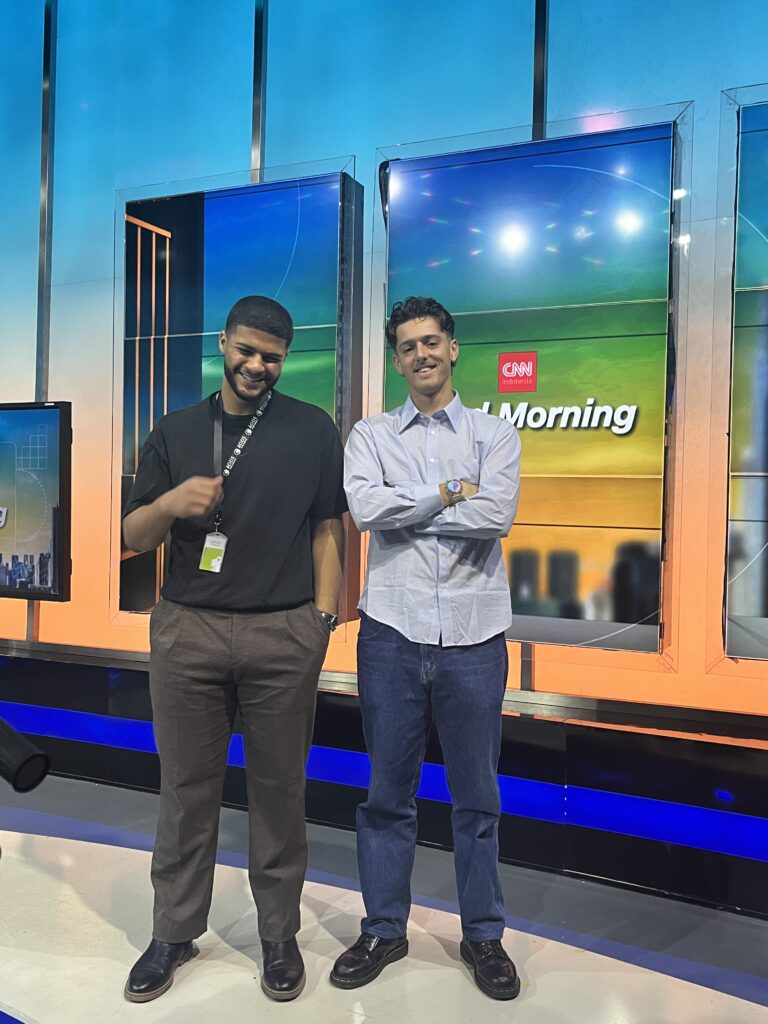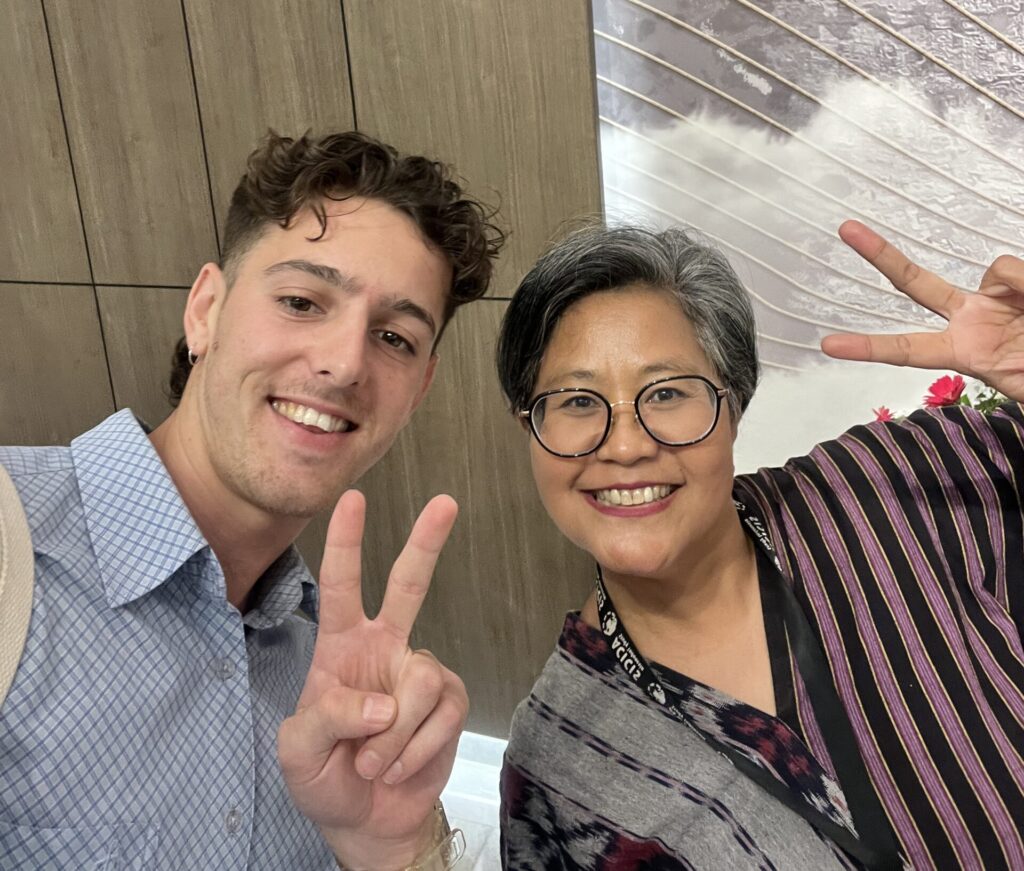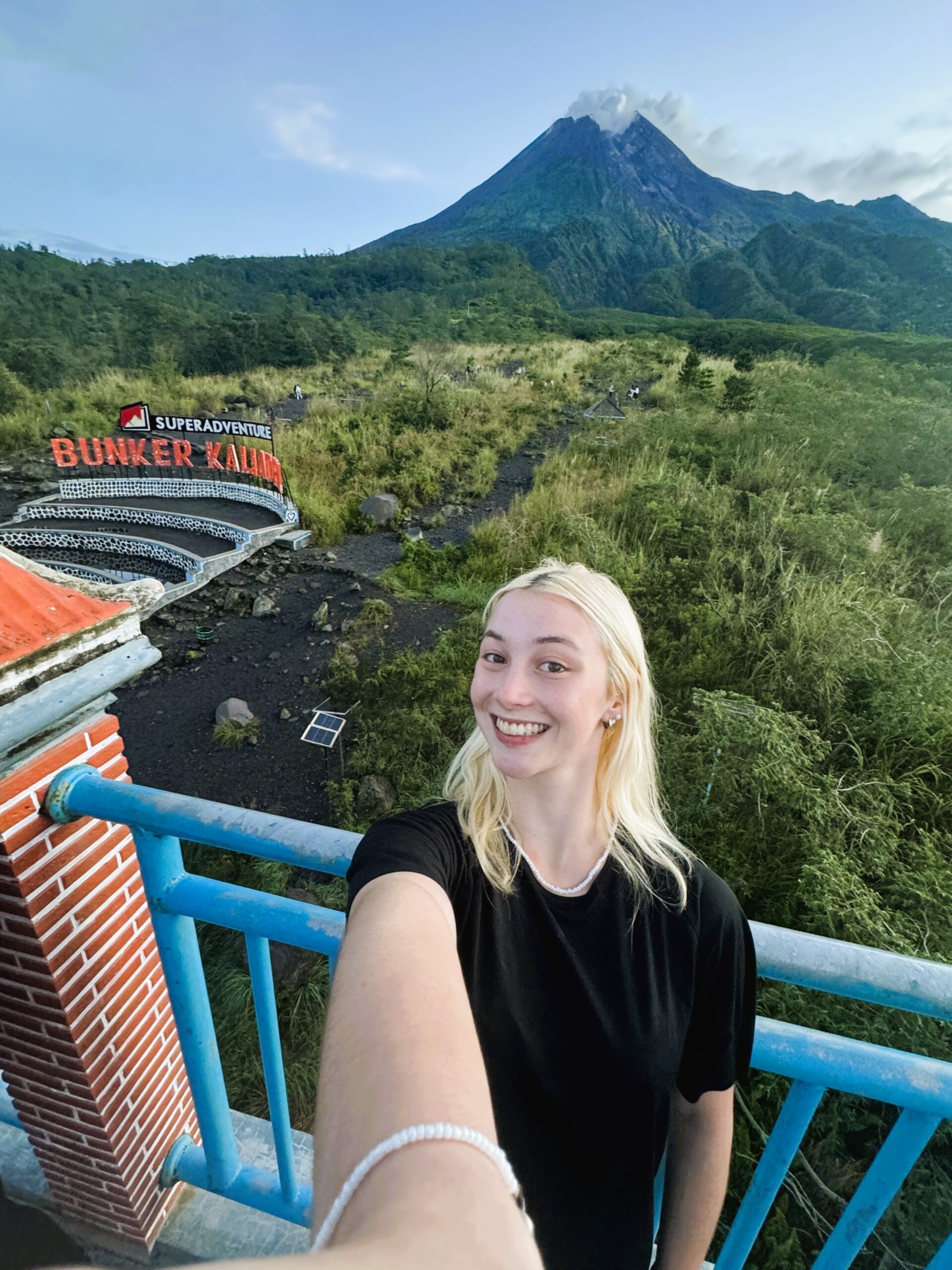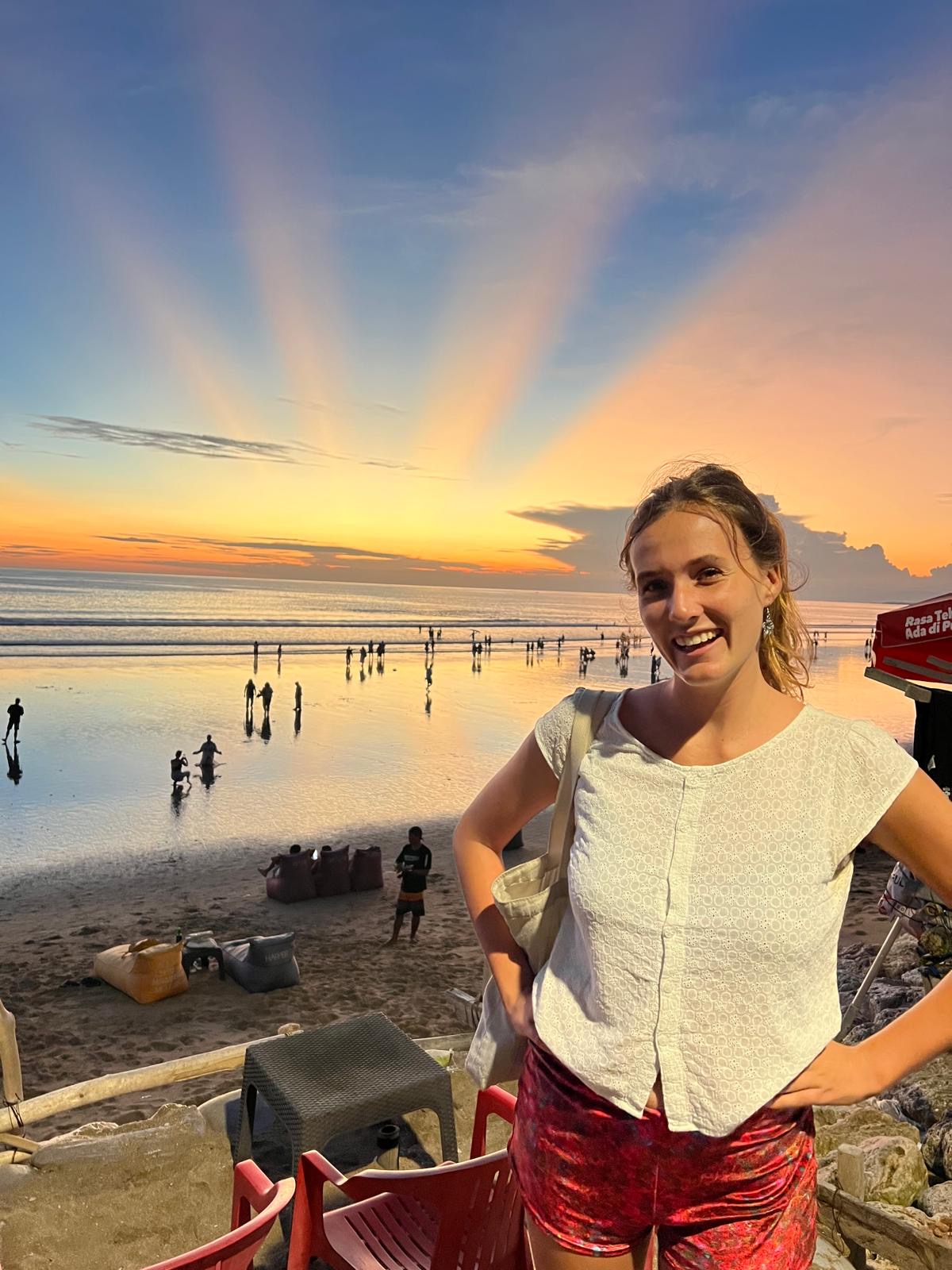Aris Schuler-Shah was a participant of the Journalism Professional Practicum (JPP), in 2025. Aris is studying at Monash University.
Q: Why did you decide to undertake the ACICIS internship program?
I am very much the type of learner that ‘learns by doing’ so, for me, the opportunity to step outside of the classroom and put my classroom learnings into practice was a no-brainer. Especially in the field of journalism, there is only really so much you can learn by sitting in a classroom, so the ACICIS internship program offered the perfect chance to put my people and communication skills to the test.
Central to journalism as a practise is the ability to find the story and the people that can tell that story. And there is no better way to learn how to do that than from the practised journalists in this country. Operating as a journalist in a foreign context offers an unparalleled opportunity to learn how to build a network of contacts, find the story and publish it for an audience different to the one that your are used to.
Q: Did you receive a New Colombo Plan Mobility Grant? Do you think the NCP is an important initiative? If yes, why?
No I didn’t unfortunately. I think the NCP is a vital initiative by the Australian Government to foster cross-cultural exchanges but its not offered to Masters students which I think is a shame.
Q: Where did you live in Indonesia (Kos, homestay, hotel, rental etc.)? Any tips for prospective students on finding accommodation?
I lived in a Kos in my time in Jakarta and thoroughly enjoyed it. I would recommend finding a Kos with some fellow Acicis students, the spontaneous hang outs and friend making opportunities are great.
When looking for accommodation I have two tips.
1: WhatsApp will be your best friend. Message the landlords, arrange to see the property same-day and ask for a better price. You’ll find somewhere pretty quick.
2: Use your language learning to build rapport and bargain for a better price. Relying on translate doesn’t have the same impact as being able to have a conversation in Bahasa Indonesia, even if its a broken one as mine were!
Q: How have you found the academic components of this program – i.e. the language classes/seminars?
The language classes were an absolute ball and the seminars invaluable.

Q: What organisation are you interning with? (Explain your role and responsibilities)
As a reporting intern at Tempo.co, my main responsibilities included researching and writing news articles for the website and social media platforms. I attended press events, interviewed sources, and fact-checked information to ensure accuracy in my reporting. I also worked closely with editors to refine my writing and adapt stories to fit Tempo’s style and audience. The internship gave me hands-on experience in digital journalism and a better understanding of Indonesia’s media landscape.
Q: How have you found the work culture of your host organisation? How is it different to work experience in Australia?
In my role I found the work place culture of the country to be very informal in the best possible way. Apart from the honorifics you use to address you co-workers and seniors, the workplace culture was very informal and relaxed. Topics could be openly discussed and viewpoints were taken into account and food and humor were at the centre of everything!
Q: What are the main skills you have learnt during your internship?
How to be adaptable. Indonesia is a fluid country. Times are rarely fixed, stories rarely straight forward and perspectives seldom finite. Adapting to the fluidity and the weird and wonderful ways in which this country moves and operates in is an invaluable skill.
Q: What did you find to be the most rewarding part of this experience?
The most rewarding part of this experience was covering the stories that matter to Indonesians and the people I met along the way doing so.
Q: Were you able to learn about the Indonesian culture from this program? If yes, how was this achieved?
Through my internship and exchange in Indonesia, I got to experience the culture firsthand, from the way people communicate to the importance of local traditions in daily life. Working in a newsroom showed me how cultural nuances shape the media and storytelling, while my exchange let me connect with locals and understand their perspectives.

Q: How will the internship benefit or influence your future career?
This internship gave me hands-on experience in reporting and writing for both online platforms and social media. Expanding my portfolio of published work and honing my ability to operate in a foreign context will be an asset as I look to apply for roles across the globe.
Q: Would you recommend this program to your friends?
Yes.
Q: Favourite Indonesian word/phrase:
Santai di pantai OR Perut kenyang, hati riang!
Q: What surprised you about Indonesia? Any new insights?
Everyone speaks about Indonesians as very hospitable and welcoming people, but even then I was suprised by how friendly the country really is. From a short conversation on the back of the bike you will find friends, a helping hand, or even be invited to dinner in the family home.
I was also suprised by how open and honest Indonesian people are. Few topics were out of bounds and people were always willing to speak their minds about current affairs, politics, sport, the lot! As a journalist this is something I value a lot and not something you see everywhere.



